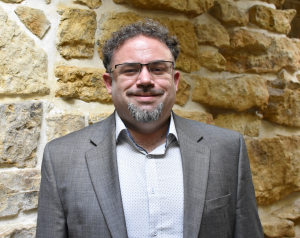Stay ahead of the curve as a political insider with deep policy analysis, daily briefings and policy-shaping tools.
Request a DemoCellphone task force begins voting on recommended measures

A task force examining students’ cellphone usage made its first vote on recommendations it plans to forward to the Kansas State Board of Education for review.
The committee on Thursday held its eighth weekly meeting as it approved a recommendation aimed at implementing a “bell-to-bell” phone-free policy ban at the elementary school level — including phones, smart watches and earbuds. That motion will be included in the committee’s final report.
The vote tally closely mirrors the results of a survey distributed to the task force showing that 25 of its members were in favor of the policy for grade school students. Six members did not vote or submit a survey response. The 36-member committee is largely composed of students, teachers, parents, administrators, board members and state representatives.
“So there are six people who did not participate in this survey?” asked Melanie Haas, a member of the Kansas State Board of Education who is on the task force. “And there are a handful of people who have not attended various meetings, even though they have had the opportunity to do so. That said, there are still 30 people who filled out the survey, and that is a pretty overwhelming majority.”
The agency is not releasing details on how individual committee members cast votes.
The committee may take a vote at its next meeting on bell-to-bell policy bans for high school and middle school students. The survey revealed that 24 members were in favor of the measure at the middle school level, and 16 approved of the ban for high school students. A recommendation that failed to gain traction centered on allowing teachers to use their discretion in classrooms regarding students’ use of personal devices, with 26 members opposed.
Members were interested in a policy that would educate students on the topic of “digital citizenship,” which encompasses aspects of privacy protection and ways to use technology responsibly in a digital environment.
“In addition to digital citizenship, it would be beneficial if students, families and school staff received information about the mental health dangers associated with unsupervised use of social media, gaming platforms and messaging/texting,” a portion of a second survey issued to the committee read.
Respondents also indicated a high interest in a policy aimed at issuing guidance for handling personal devices during emergencies. A policy could ultimately require districts to develop “robust safety and emergency procedures that are not dependent on students contacting authorities.” Respondents were almost universally interested in delving into the ramifications of phones “being off and locked away during an emergency.”
The committee did not appear highly interested in forwarding recommendations regarding what constitutes the infringement of students’ personal rights. The survey question also tied in with students’ classroom behavior and how it correlates with screen time distractions. The question noted that “disturbing trends” cracking down on students’ personal devices are akin to “checking kids into prison for the day.”
Erika Sheets, a parent on the committee, said the phrasing of some of the questions frustrated her.
“I’m not exactly sure how this is going to be translated into results,” she said, describing some of the questions as boxing in respondents or steering them toward a certain answer.
Respondents were divided on a policy that would only allow students to access personal devices during designated times. But 24 members were in favor of a policy mandating that middle school students store their personal devices in a secure location not accessible during the school day, while 22 were in favor of the same policy for elementary students.
The committee thus far has concentrated on three primary topics: personal devices in school, parental oversight of district-issued devices and screen time and mental health.
“The plan for the next meeting is to come back and continue the votes on the personal device policies,” said Payton Lynn, a public service executive for the Kansas State Department of Education.
The committee reconvenes on Oct. 17 and is also scheduled to meet on Oct. 24 and Nov. 7, Lynn said. The committee is not currently scheduled to meet on Oct. 31, but that could change, according to Lynn.
Matt Resnick is a statehouse reporter at State Affairs Pro Kansas/Hawver’s Capitol Report. Reach him at [email protected]
